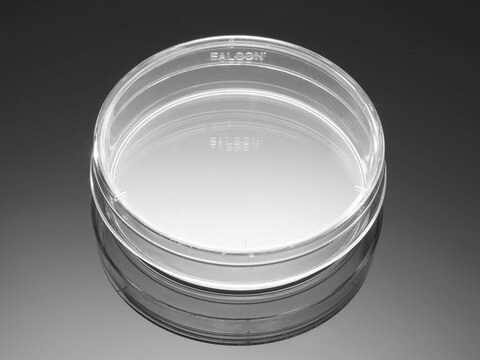M8802
Malonate broth
pH 6.7±0.2 (25 °C), NutriSelect® Plus, suitable for microbiology
About This Item
Produits recommandés
Stérilité
non-sterile
Niveau de qualité
Forme
powder
Fabricant/nom de marque
NutriSelect® Plus
Technique(s)
microbe id | utilization test: suitable
microbiological culture: suitable
pH
6.7±0.2 (25 °C)
Application(s)
food and beverages
water monitoring
microbiology
Adéquation
Klebsiella spp.
Salmonella spp.
nonselective and differential for Enterobacter spp.
nonselective and differential for Escherichia coli
nonselective and differential for coliforms
Description générale
Application
Composants
Ammonium sulfate, 2.00
Dipotassium phosphate, 0.60
Monopotassium phosphate, 0.40
Sodium chloride, 2.00
Sodium malonate, 3.00
Bromo thymol blue, 0.025
Notes préparatoires
Note de bas de page
The designations basic, plus, or prime are added to indicate the quality control level, from basic quality control to standard QC plus to prime for full regulatory compliance.
Informations légales
Code de la classe de stockage
11 - Combustible Solids
Classe de danger pour l'eau (WGK)
WGK 3
Point d'éclair (°F)
Not applicable
Point d'éclair (°C)
Not applicable
Équipement de protection individuelle
Eyeshields, Gloves, type N95 (US)
Faites votre choix parmi les versions les plus récentes :
Déjà en possession de ce produit ?
Retrouvez la documentation relative aux produits que vous avez récemment achetés dans la Bibliothèque de documents.
Les clients ont également consulté
Articles
An article concerning selective growth media for differentiation and detection of Escherichia coli and other coliforms.
An article concerning selective growth media for differentiation and detection of Escherichia coli and other coliforms.
An article concerning selective growth media for differentiation and detection of Escherichia coli and other coliforms.
An article concerning selective growth media for differentiation and detection of Escherichia coli and other coliforms.
Notre équipe de scientifiques dispose d'une expérience dans tous les secteurs de la recherche, notamment en sciences de la vie, science des matériaux, synthèse chimique, chromatographie, analyse et dans de nombreux autres domaines..
Contacter notre Service technique
















